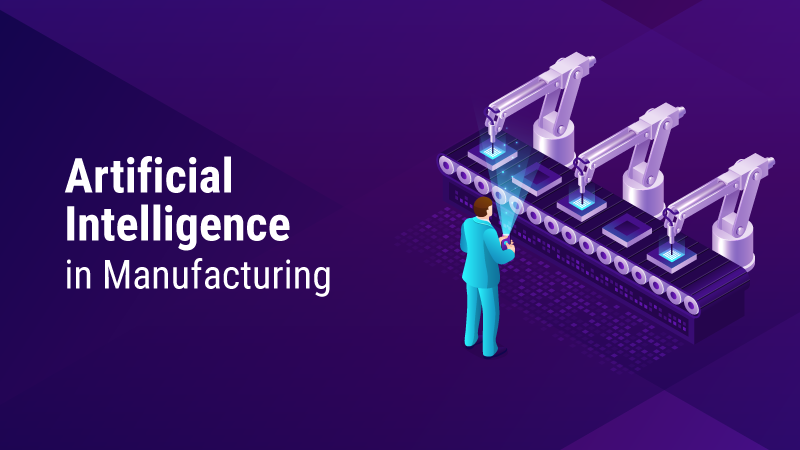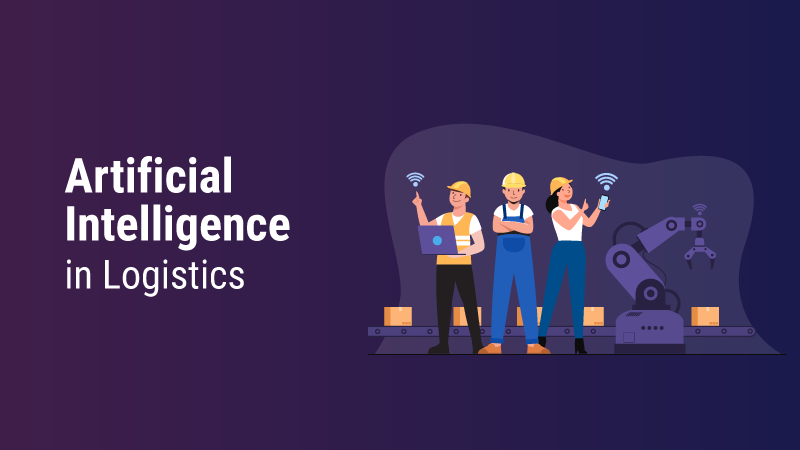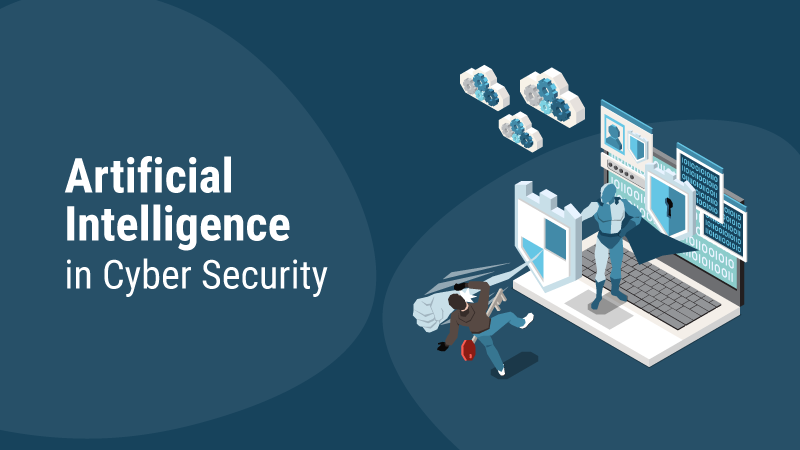Behind every operation that takes place in the manufacturing industry, artificial intelligence plays a major role. AI has the ability to receive different types of data not just from people, but also from machines, sensors, etc., and use it with specifically designed algorithms in order to optimize operations. If we consider the use of artificial intelligence in manufacturing, AI offers multiple ways to improve industrial value. Machine Learning or ML is the most commonly used subset of AI in manufacturing. The process manufacturing industry is one of the highly combative industries with rapidly transforming markets and complex systems. Therefore, the process plants need every single benefit that AI and ML can offer to spur innovation and maximize profits.
Let us go through this article to know more about the different applications of artificial intelligence in the manufacturing industry.
Benefits of using AI in the Manufacturing Industry
Implementing Artificial Intelligence has many for the manufacturing industry. Let us start with the key advantages or benefits AI offers in this area of operation:
Faster decision making
With the integration of IIOT (Industrial Internet of Things) with VR OR AR and cloud computing, companies will be able to share simulations, talk about production activities, and pass on live crucial or relevant information no matter wherever their location is. Moreover, the data collected from sensors and beacons help decide customer performance, enable businesses to foresee future requirements, make quick decisions on production, as well as accelerate transfers between manufacturers and suppliers.
24/7 production
The working hours of human employees are divided into 3 shifts to ensure smoothness and continuity in production. On the other hand, there are AI-induced robots that work 24/7 without any intervals or breaks. They are designed to enhance productivity and increase business while meeting the demands of customers around the world.
Safe environment
Human workers can make mistakes knowingly or unknowingly. Such mistakes may result in uncompromising errors or accidents in the organization. Though AI cannot eliminate the risk factors completely, it can at least minimize or reduce the intensity of errors. The availability of remote access controls eliminates the need for human interventions. Also, ultra-modern sensors allied with IIoT (Industrial Internet of Things) equipment assist in the efficient installation of defense and security guards.
Opportunity for human employees
As AI takes up the manual jobs done by human employees, it lifts the weight of time-consuming, tiring, and repetitive work from manual workers. Human employees now have the time to focus more on creative and challenging tasks that actually require their intelligence to drive the business in the right direction.
Less operational cost
It is true that setting up AI in industrial businesses requires a huge capital investment but the ROI (return on investment) you can expect from AI is significantly higher. Once intelligent machines start to deal with day-to-day operations, businesses will be able to save lots of functional costs.
Use Cases of AI in the Manufacturing Industry
As we have discussed the benefits of AI in the manufacturing industry, let us move to its use cases. The use cases of artificial intelligence in manufacturing include:
Predictive maintenance
Analyzing sensor data allows manufacturers to detect possible errors and downtime, anticipate the time when machines stop working, and schedule repairs before errors occur. This results in increased efficiency because the functions do not have to be stopped, and minimizes the cost of repairing and replacing failed machines.
Cybersecurity
As large amounts of data are produced in security logs due to the manufacturing industry environment, filtering doubtful ones during everyday operations is a big task. Artificial intelligence is capable of identifying fraud, infiltrators, malware, and more on its own, enabling it to deal with modern cybersecurity threats and challenges more rapidly and precisely than a human worker.
Edge analytics
Edge analytics gathers data from AI-driven devices and sensors, thus providing decentralized and quick statistics from those datasets. The data gathered by Edge, after analysis, can be converted into statistics which then can be used to optimize operations. Edge analytics can also be used to:
- Monitor the health and safety of employees
- Enhance production quality and outcome
- Identify the early stages of performance impairment and risk failure.
Robotics
No other technology is as efficient as robotics to automate business operations, reduce workload, increase production, and minimize errors. Robots reduce the workload of employees and allow them to spend more time on much more complex tasks. With AI being added to robotics, they not only monitor their actions but also train themselves to work more efficiently and improve their performances every day.
Quality checks
This is one of the most important use cases of artificial intelligence in the manufacturing sector. Sometimes detecting the internal malfunctions of equipment becomes difficult to even though experts are not able to monitor the performance of the products and find out their shortcomings. But this task can be easily completed with the help of Artificial Intelligence (AI) and Machine Learning (ML) as AI tools and applications can effectively detect minor bugs in machinery. Therefore, it is clear that artificial intelligence ensures quality checks and control in manufacturing. Smart AI solutions track machine productivity and performance, enhance productivity, detect faults, and eliminate costs of maintenance as well.
Customer management
Smart AI chatbots not only help in increasing sales, productivity, and performance but also helps in improving customer service. This reduces the waiting time of customer, gives instant replies to them, build customer relation using CRM tools, and use consumer data to make informed decisions.
Wrap Up
AI and industrial automation have achieved extensive and significant progress in recent years. The development of machine learning techniques, the most sophisticated robotic technology, the increase in the growth of computer power, and ultra-modern sensors – all have contributed to the emergence of AI as a superpower in the modern era. The deep learning and speech recognition skills enabled AI to collect and extract data, identify patterns, learn, and improve day-by-day. All these factors made AI highly adaptable to the human environment. The implementation of Artificial Intelligence (AI) in the manufacturing industry not only supports the manufacturers but also assists technology developers in improving the quality of their ideas, bringing out ‘outside the box’ digital technology solutions, and building them into reality with expert assistance.
Get Started with our AI ServicesRead more about AI
- Artificial Intelligence in E-commerce
- 7 Real-World Applications of Deep Learning
- Artificial Intelligence in Marketing
- Artificial Intelligence in Finance
- Artificial Intelligence in Banking
- Artificial Intelligence in Everyday Life
- Artificial Intelligence in Insurance
- Artificial Intelligence in Transportation
- Artificial Intelligence in Fintech
- Artificial Intelligence in Cyber Security
- Artificial Intelligence in Logistics




